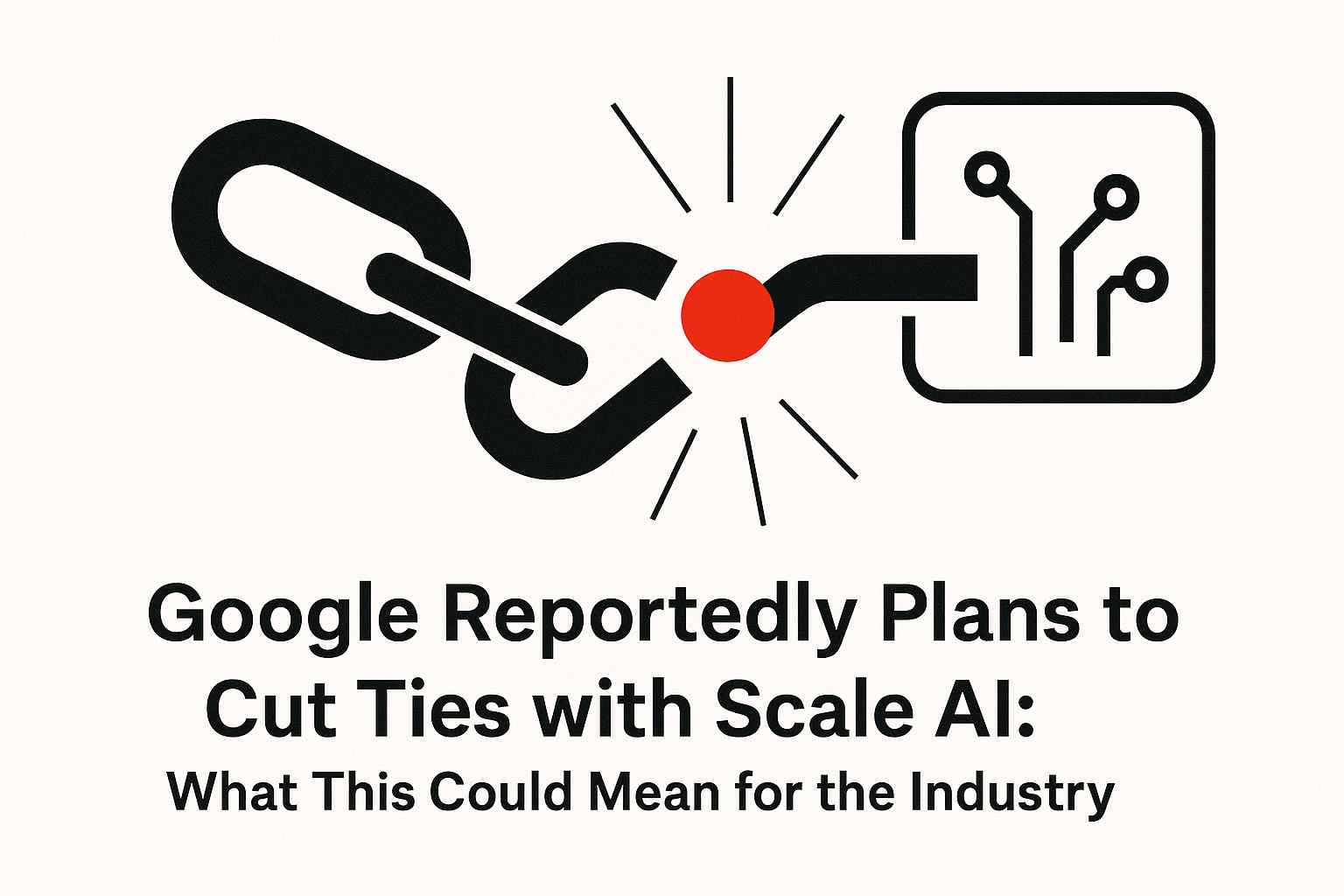Google Reportedly Plans to Cut Ties with Scale AI: What This Could Mean for the Industry
In recent developments shaking the AI landscape, Google is reportedly planning to sever its partnership with Scale AI, a leading data labeling and annotation company. This potential shift marks a significant change in how Google sources and manages labeled data for its AI models. As data quality and annotation services remain crucial for the advancement of machine learning systems, this news has raised questions about the future strategies both companies might employ.
Understanding the Google-Scale AI Partnership
Google and Scale AI have collaborated closely to enhance data labeling for various AI applications, from natural language processing to computer vision. Scale AI’s expertise in providing high-quality, human-labeled datasets has supported Google’s efforts to train and fine-tune many of its advanced machine learning models. This partnership has been essential to maintain the accuracy and reliability Google’s AI technologies are known for.
However, reports indicate a strategic pivot by Google, possibly moving toward more internal solutions or exploring partnerships with alternative vendors. The decision could be driven by multiple factors, including cost optimization, data privacy concerns, or the desire for more direct control over training data.
What Cutting Ties Means for Google’s AI Development
If Google proceeds with this change, it might accelerate the company’s investment in proprietary data annotation tools or AI-driven labeling systems that reduce reliance on third-party providers. This move aligns with a broader industry trend where tech giants are attempting to internalize core AI capabilities to safeguard intellectual property and enhance data governance.
Additionally, this could encourage innovations in unsupervised or semi-supervised learning methodologies within Google’s AI research teams. By minimizing external dependencies, Google may bolster its capacity to scale AI model training more efficiently while addressing ethical and regulatory requirements in data handling.
See our recent guide on AI data strategies to learn more about evolving trends in the field.
Potential Impact on Scale AI and the Industry
For Scale AI, losing Google as a client would certainly be a notable setback but not necessarily a critical one. Scale AI has a diversified client base that includes government agencies, automotive industry leaders, and other tech firms. The company might also take this opportunity to innovate and expand its offerings, potentially entering new markets or increasing its focus on automating data labeling processes.
Industry-wide, this development could prompt other organizations to reevaluate their partnerships and data strategies. The competitive landscape of AI data providers may see increased pressure to offer more integrated, secure, and cost-effective solutions.
For more context on Scale AI’s market positioning and challenges, refer to this detailed report on TechCrunch regarding the situation: Source.
How This Reflects Broader Shifts in AI Industry Partnerships
Google’s reported plan fits into a larger narrative where major AI corporations strive toward vertical integration. Controlling every aspect of the AI pipeline — from data collection to model deployment — is becoming a priority. This approach helps streamline operations and reduces vulnerabilities associated with outsourcing critical components.
Moreover, the growing emphasis on data privacy legislation globally compels companies like Google to reassess how external collaborations manage sensitive data. By reducing third-party involvement, Google may better ensure compliance with evolving regulations like GDPR and CCPA.
Explore our analysis on AI compliance challenges for more insights.
Conclusion: What to Watch Next
Google’s rumored move to cut ties with Scale AI signals a pivotal shift in AI data sourcing and partnership models. While it may reflect internal strategic priorities, this decision will likely reverberate throughout the AI ecosystem, influencing how data labeling services evolve and how large tech companies handle critical AI infrastructure.
For businesses and AI practitioners, staying informed about these developments is critical. Adaptation and innovation around data acquisition and model training will be essential to maintain competitive advantage.
Stay tuned as we continue to monitor and analyze these unfolding AI industry changes.
Ready to master AI strategies and stay ahead in this dynamic landscape? Subscribe to our newsletter and never miss an update.
📢 Want more insights like this? Explore more trending topics.



